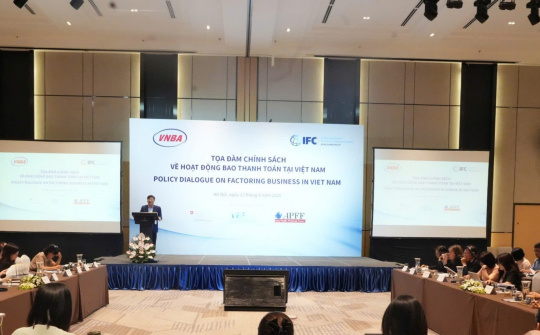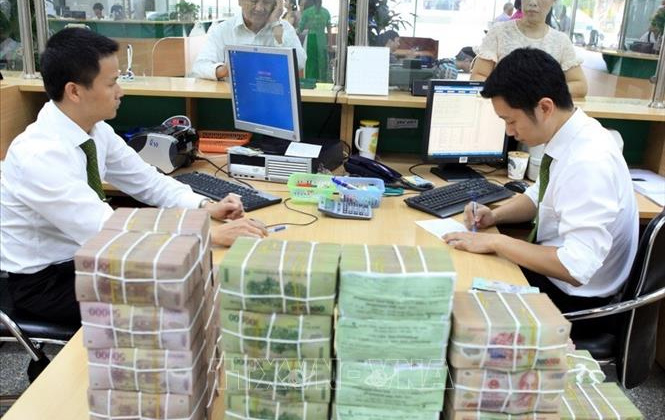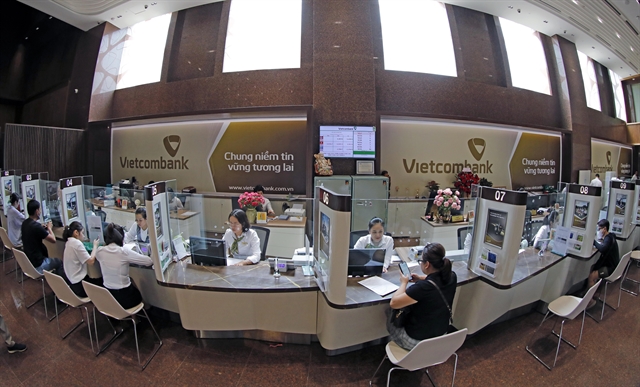While some foreign banks in Vietnam, such as Shinhan Bank and Standard Chartered, have already rolled out biometric verification for their customers, others such as UOB and HSBC have yet to comply even though the deadline of January 1 has passed.

New rules were issued for January 1, but some lenders still have to catch up
All domestic banks are implementing biometric verification for online transactions with customer accounts. Lenders such as Vietcombank, VietinBank, BIDV, VPBank, and Techcombank have already sent notifications to their customers, requiring them to register for verification in preparation for the upcoming changes in money transfer regulations.
Pham Anh Tuan, director of the Payment Department at the State Bank of Vietnam (SBV), stated that the biometric verification requirement applies to both domestic and foreign credit institutions. Banks that do not comply are in violation of the regulations.
“This decision regarding security measures in online payments has been in place for a long time, but any bank that has not implemented it is violating the regulations and cannot justify the delay. All banks operating in Vietnam must comply with the regulations of the host country,” Tuan emphasised.
He mentioned that following a series of new rules on online transactions, new cards, and online banking security, banks that fail to implement biometric security will be penalised with administrative fines.
“If foreign banks fail to meet the verification requirement, they must suspend their services for customers until they comply with the SBV’s regulations,” Tuan warned.
Explaining why some foreign banks in Vietnam have not yet implemented such verification, Dr. Nguyen Tri Hieu, director of the Institute for Research and Development at Global Financial and Real Estate Markets, explained that foreign banks in Vietnam often have multiple layers of security for their customers.
“Some banks do not use 24/7 fast transfer services, and when unusual transactions occur, they have time to verify. Additionally, they use a special code for transactions similar to a one-time password. As a result, foreign banks rarely experience cases of money being stolen or fraud.”
A representative from HSBC Vietnam has confirmed that they are continuing to take the necessary steps to ensure they can implement biometric verification as required while maintaining stability and security for online banking transactions.
“The bank will continue to cooperate with regulatory authorities and update the progress of this regulation,” said a representative.
Meanwhile, UOB is in the process of taking over retail banking and credit card operations from Citibank in Vietnam after an acquisition in 2023. It is expected that UOB will begin collecting biometric data from users after completing the handover from Citibank.
At a press conference on January 7, the SBV’s Deputy Governor Pham Tien Dung acknowledged that some foreign banks have been slow in implementing the biometric verification requirements compared to domestic banks. Therefore, the leadership of the SBV hopes that these banks will accelerate the process.
“The mandatory verification is not for no reason. This solution aims to protect citizens and prevent cybercrime. Over 84.7 million accounts have been verified with biometric data, which is a significant number showing public consensus and the industry’s unified implementation,” said Dung. “Currently, up to 90 per cent of transactions are conducted through digital channels, so we need to prepare for potential issues.”
In addition to the mandatory verification for personal accounts, the SBV has extended the requirement to corporate customers. According to two circulars issued by the SBV, from January 1, corporate customers are only be able to withdraw or make payments electronically on payment accounts after completing the biometric verification process for the legal representatives of the organisation.
Banks will begin collecting biometric data from corporate clients, which aims to ensure security and safety when using payment accounts, reducing the risk of fraud and money laundering related to accounts rented, bought, or borrowed by fraudsters.
“Corporate clients must update information on valid identification documents for their legal representatives, chief accountants, or authorised account users, including electronic banking service users,” stated Vietcombank in a notice.
“The legal representative of the organisation must update biometric information by July 1. After this period, if the client fails to update, Vietcombank will suspend the transfer and withdrawal services on the client’s electronic banking account.”




















